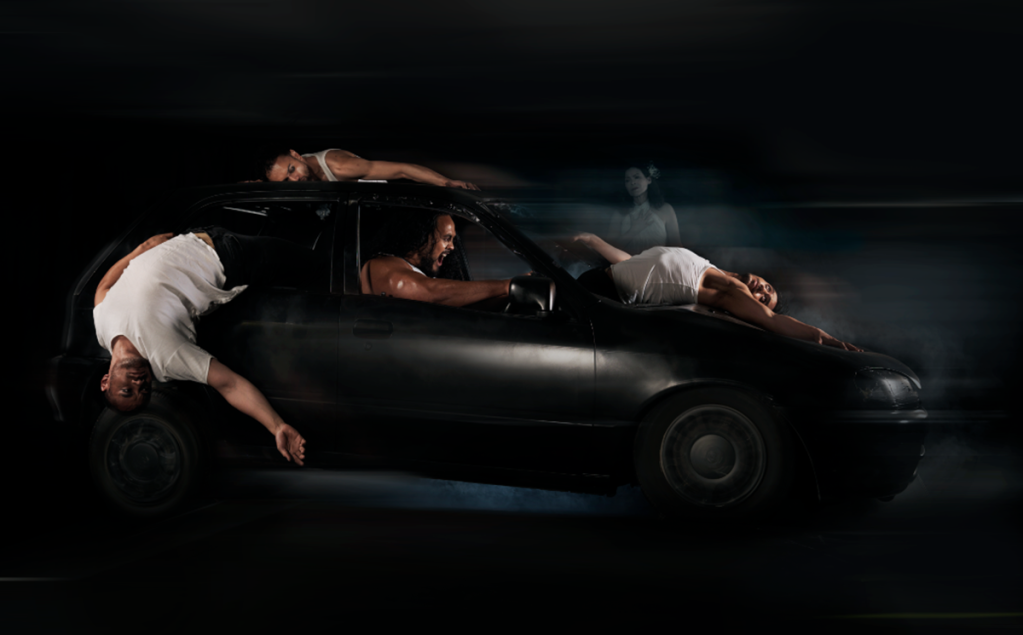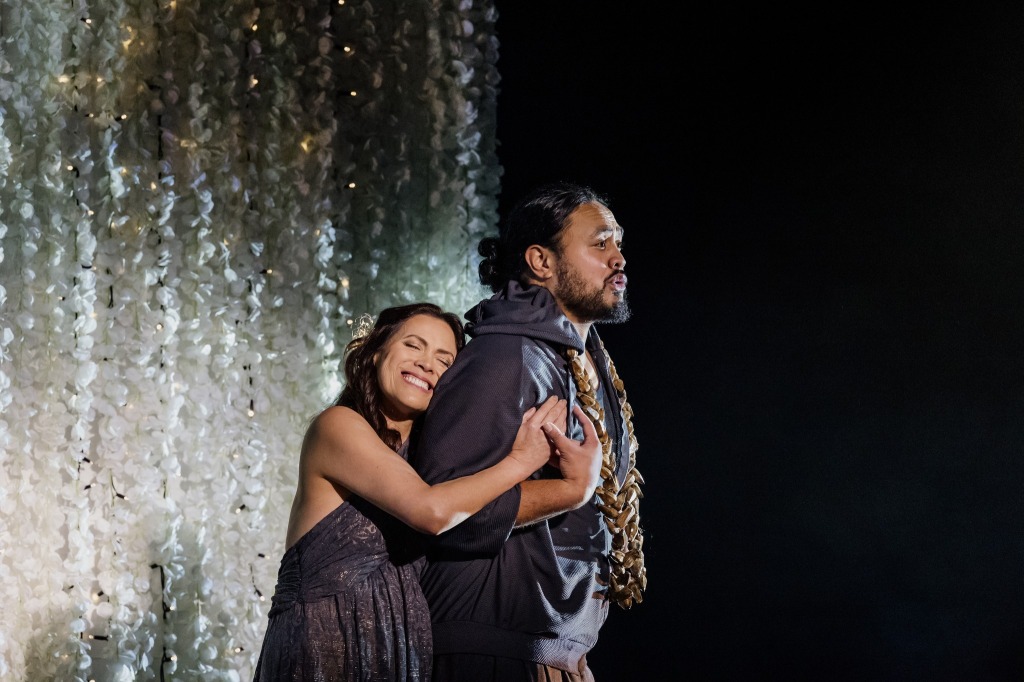Reviewed by Malcolm Calder

(m)Orpheus by Christoph Gluck
An Opera in 3 Acts
NZ Opera/Black Grace co-production
Director/Choreographer: Neil Ieremia
Conductor: Mark Taddei
Design: Tracy Grant Lord
Lighting: JAX Messenger
Assistant Director: Jacqueline Coats
Re-orchestration: Gareth Farr
With: Samson Setu, Deborah Wai Kapohe, Madison Nonona
NZO Chorus: Alfred, Emeline, Faamanu, Jordan, Lemauseafa, Stella, Taylor, To Ohorere
Black Grace Dancers: Demi-Jo, Rodney, Fuaao, Sione, Vincent, Ben, Paula
Auckland Philharmonia Orchestra
ASB Waterfront Theatre, Auckland, 6, 7, 9, 10 September
Opera House, Wellington, 20, 22,23 September
Reviewed by Malcolm Calder
Once again NZ Opera reveals strength, innovation and rising stars while Neil Ieremia continues to astound and amaze.
I would not have been surprised to learn that Gluck and Ieremia shared childhoods – they certainly share mindsets. Both have that rare ability to work from clear cultural underpinnings and to innovate. Both build on tradition and to then fill a story with clear characters and real emotion and then generate a revolution in style and content.
Gluck turned the traditional opera world a little on its head in the 18th century when he – shock, horror – veered away from the prevailing highly-mannered teutonic reliance on pretty loose plots that served to primarily to show off singers. He stood by them of course, but added a new twist to a traditional Greek fable by creating a new plot for Orpheus and Eurydice that animated his characters. Courtly audiences soon found this entertaining and other composers were to follow.
Ieremia’s cultural roots are firmly planted too. But his are Pasifika ones and his outlook is decidedly visionary. He says he found Gluck’s ideas on enduring love and loss inspiring, and then goes on to toss in a couple of contemporary issues as well and the result is this high-impact contemporary re-imagination (m)Orpheus.
So, if Gluck led a movement that took opera to a whole new place, then Ieremia starts from a slightly different one and takes it to yet another place.
His key character is Orpheus. Samson Setu gives us a young man who is definitely a man’s man. He probably works in a highly physical environment, lives an industrial life and could easily make it as a rampaging forward for the Warriors. But with the death of his wife, the lovely, delicate Eurydice (Deborah Wai Kapohe), sensitivity to his feminine side is revealed as rather absent and things don’t go so well.

(m)Orpheus is a story of Eurydice’s death and then Orpheus’ search for her under the auspices, guidance and suggestions of a perkily bouyant Amor (Madison Nonoa). But it is also a story about one man’s search for himself through the netherworld of his own mind until he eventually come to terms with life itself.
The power and strength of the principals stand out as they should, highlighting the many fine young voices now rising to the surface of a what can be a cut throat industry. Setu is consistently strong and then wrought, Kapohe personifies eye-rivetting beauty and a strong sense of self, while Nonoa provides a delightful dash of both costumed and vocal pink.
But it is Ieremia’s blend of dancers and chorus into something that moves in fluid singularity that stands out. Somehow singers become dancers, and dancers become singers – at least they did in my mind. He blends Samoan tradition with lyrical movement the fluidity of the whole becomes a thing of beauty itself. It is a joy to see a cast enjoying itself. And this cast does exactly that.
Tracy Grant Lord’s design rests largely on a black and white motif with splashes vibrant colour to high-lighting particular points, all dramatically lit by JAX Messenger. It moves from an industrial setting to a suburban one, then to the netherworld and back again. Yes, there is a rather battered old car. Two in fact.
Gareth Farr’s re-orchestration for small chamber orchestra is entirely appropriate, fitting both Ieremia’s interpretation and this venue well, while the APO is as accomplished as ever under Marc Taddei. (m)Orpheus is sung in English with some Samoan chorus work, full surtitles, and could easily transfer quite easily to anywhere in the world.
As I have written previously, Neil Ieremia is by far one of Aotearoa’s most astonishing and prolific home-based creatives. His ever-growing body of work has easily and unselfconsciously graced stages in many parts of the world and he is rapidly becoming a one-man export machine. In part this is because of his perfectionism that never forgets the past, stands firmly rooted in the present and yet finds time to seriously address the future – sometimes simultaneously. In sum, he is particularly perceptive about the way cultural forms are adapted, reimagined and made relevant.
So congratulations to NZ Opera for this production and especially for both introducing younger performers and for innovative programming. And thank you Neil Ieremia for making it happen.
To subscribe or follow New Zealand Arts Review site – www.nzartsreview.org.
The “Follow button” at the bottom right will appear and clicking on that button will allow you to follow that blog and all future posts will arrive on your email.
Or go to https://nzartsreview.org/blog/, Scroll down and click “Subscribe”